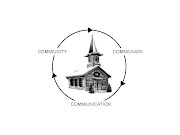The Church was designed, in part, to function for koinia (fellowship); does it serve this function well or is it lacking?I think the church at large is lacking in the koinia department. I think this is due to people being “too busy,” and churches being too big. This is not to say that big churches are an inherently bad thing, its just that most attenders of big churches do not avail themselves of the opportunity to be involved in a more intimate, “small group” setting. This could be either because of a lack of motivation, understanding, opportunity, or even a lack of priority placed in it, either by the church or the attender.
At the church I pastor Koinia happens quite often and naturally. It is a smaller church, and we live life in common. Much of what is displayed as genuine fellowship in Acts 2-5 is evident in the church I pastor. We meet each others material needs sacrificially and voluntarily. We do life together, sharing meals and such. It is actually part of our purpose statement to foster a family like atmosphere, believing that this is why they have favor with everyone in Acts 2.
How does effective communication aid the function and process of koinia?I would say effective communication is every bit as critical for koinia as it is for any other relationship. It promotes intimacy. It keeps people from feeling left out. If there are no needs being communicated, how can the body meet those needs?
What has been your experience in the Church: Does it communicate well (both within and without)?I think for the most part the church communicates well. Most churches are mechanized enough to be able to offer communication methods such as phone tree, bulletin, newsletter, and some churches enter the technical age of communication with such things as email, web site, forums, blogging, etc. This is only the method of communication, however. One must also consider the content being communicated. I think this is where the church needs to improve.
The effectiveness of the content is at least as important as the method. For true communication to occur the message must be received and comprehended as intended by the initiator of the communication. I think the church assumes the message is getting out there, but is it being understood properly? Do we have a way of confirming that?
I am mainly an emailer. I find it to be most convenient. I mean, gosh, I already spend several hours on the phone anyway, it is nice to be able to sit down to the computer and get message out to as many people as have email addresses. I must remember, though, that there are certain people in our body that either don’t have email, or prefer to have a “real” conversation with someone. I could email them, but that would not be effective. We try to communicate things using as many different methods as possible.
How might communication improve in the Church?Oh, I think I already started answering that! I think the church needs to focus on the effectiveness of the content, and develop better ways of confirming the message is received as intended.
How does communication relate to and/or effect community?I believe that community equals fellowship.





